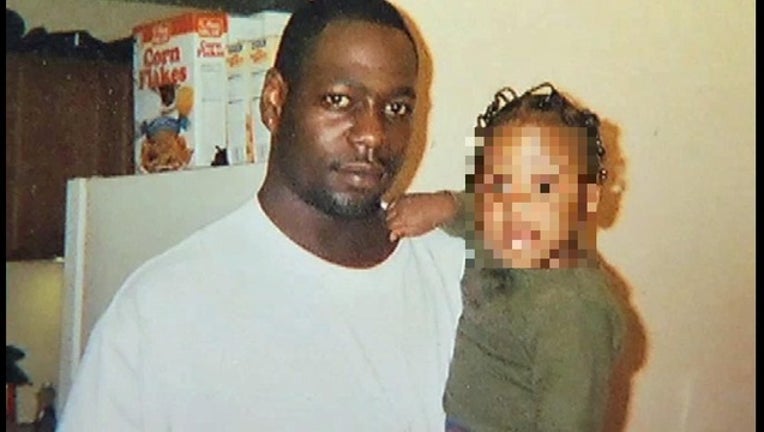Judge finds 'misconduct' by city attorneys in fatal CPD shooting case

Darius Pinex
CHICAGO (STMW) - A federal judge Monday found a lawyer for the city intentionally misled the court when he failed to turn over a key recording of a police radio broadcast to attorneys for the family of a man shot to death by Chicago cops in 2011, the Chicago Sun-Times is reporting.
U.S. District Judge Edmond Chang reversed a jury’s decision that found Officers Gildardo Sierra and Raoul Mosqueda didn’t wrongfully kill Darius Pinex. The judge granted Pinex’s family a new trial in their lawsuit against the city.
Jordan Marsh, an experienced attorney for the city, knew about the recording before the lawsuit went to trial in March 2015, Chang said in a 72-page opinion filed Monday.
“The court has no choice but to conclude, based on the record evidence, that Marsh intentionally withheld this information from the court,” the judge wrote.
Another city attorney, Thomas Aumann, “failed to make a reasonable inquiry, as required by the discovery rules, to search for the recording,” Chang added.
The conduct by Marsh and Aumann thwarted the ability of lawyers for Pinex’s family to prepare for trial, Chang said.
Attorneys for Pinex had asked for the broadcast to show the officers were not acting on information that would have justified a “highly aggressive” traffic stop resulting in Pinex’s death.
Mosqueda had initially claimed he stopped the Oldsmobile Aurora that Pinex was driving based on an Englewood District broadcast that warned the car might have been involved in a shooting in a different police district about three hours earlier.
Mosqueda said he jumped out of his police SUV with his gun drawn because of the warning.
But the broadcast didn’t actually say anything about an Oldsmobile Aurora being wanted in a shooting or having a gun inside.
The only broadcast the officers could have heard was that other cops in the South Chicago District had chased a ’98 Olds Aurora with temporary plates and the pursuit was terminated, Chang noted.
Marsh “buried” the Englewood audio recording and gave misleading statements at the trial — even saying the recording would have been “recycled a long time ago” — before he admitted its possible existence, the judge wrote.
“It is easier to show that a highly aggressive stop is unjustified if it has literally no basis than if it is in reaction to the genuine belief that the car earlier had been pursued,” Chang said.
“Attorneys who might be tempted to bury late-surfacing information need to know that, if discovered, any verdict they win will be forfeit and their clients will pay the price. They need to know it is not worth it,” he wrote.
In addition to ordering a new trial, Chang said the city and Marsh are jointly responsible for paying attorneys’ fees to the lawyers for Pinex’s family for the work they did in preparing for the trial.
Chang’s decision is another black mark for the city following last year’s release of the video of Officer Jason Van Dyke shooting knife-wielding teenager Laquan McDonald 16 times. Van Dyke is charged with murder in that 2014 death. Outrage over the video has prompted a federal investigation into police practices and the firing of police Supt. Garry McCarthy.
Pinex was fatally shot on Jan. 7, 2011, after Mosqueda and Sierra stopped his car in the Englewood neighborhood.
According to the judge, here is what happened that day:
— Sierra approached Pinex, who was the driver, and Mosqueda approached a passenger, Matthew Colyer.
— Pinex put the car in reverse and hit a light pole.
— Colyer fell out, injuring his hand, and Mosqueda was knocked down.
— Pinex put his car in drive and Mosqueda opened fire, killing Pinex. Sierra also fired, but didn’t hit anyone.
The officers said they fired at Pinex because he had tried to drive away and was endangering their lives.
But lawyers for Pinex’s family said one of the officers fired an initial shot without any reason, prompting Pinex to flee.
The Oldsmobile Aurora that Pinex was driving had different temporary plates than the car involved in the earlier chase in the South Chicago District, the judge noted.
Despite the new evidence from the Englewood police broadcast, a federal jury ruled in favor of the officers and the case was dismissed against them. But Chang said Pinex’s lawyers were sandbagged by the city’s failure to provide the broadcast to them before the trial.
They were forced to change their theory that Mosqueda was lying about the existence of the broadcast, the judge said.
Even Marsh’s fellow lawyers on the case were “shocked” and “upset” when he disclosed that he knew about the broadcast, Chang said. Marsh knew about it at least a month before the trial began, the judge said.
“The first trial was unfair and plaintiffs presentation was hurt beyond repair by the surprise,” Chang said in his opinion.
Chang also said he believes there’s a lack of training for attorneys in the Law Department about collecting documents that need to be turned over to attorneys suing the city. And the city’s attorneys have shown a lack of understanding about how the police radio system works, he said.

